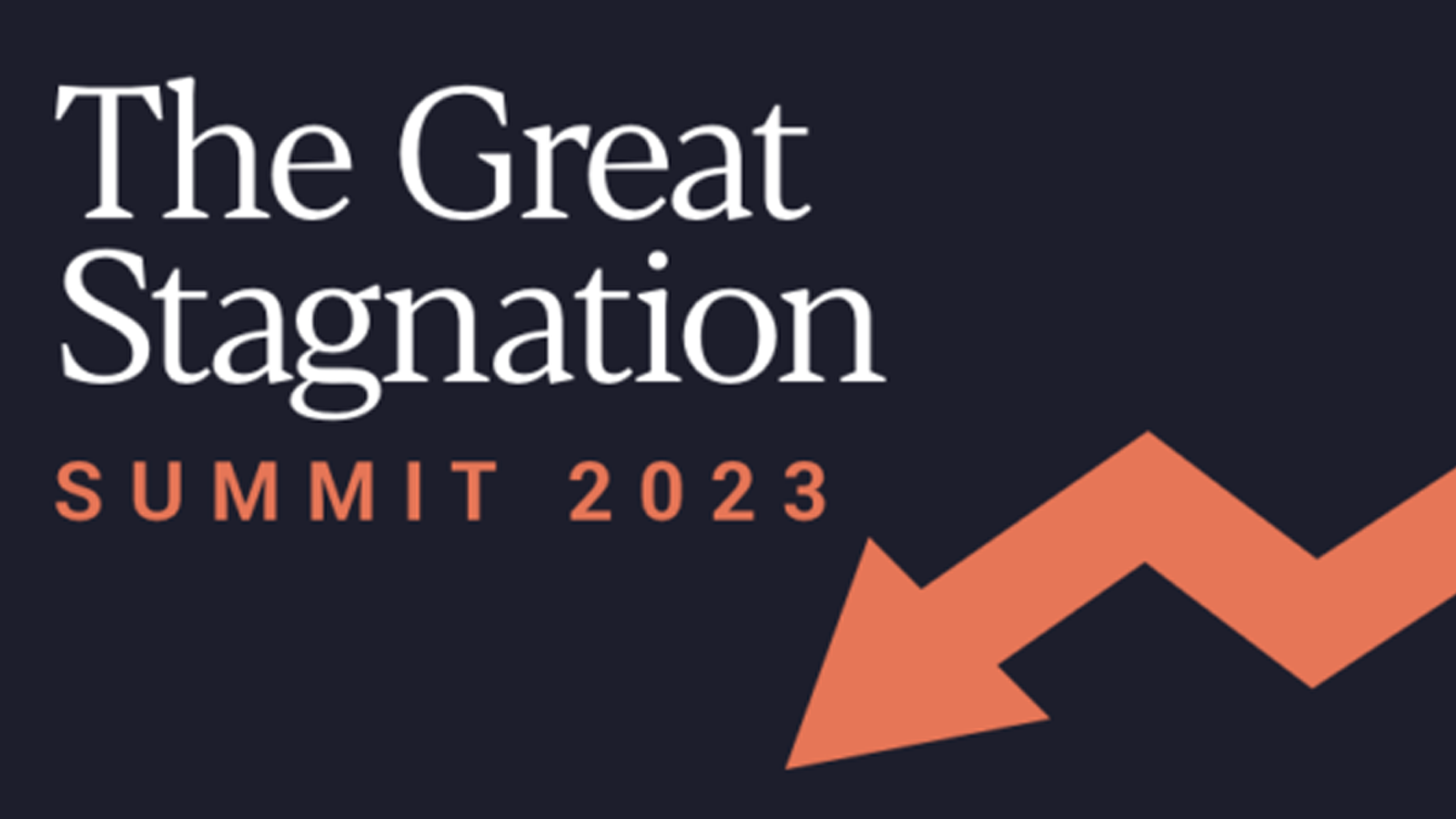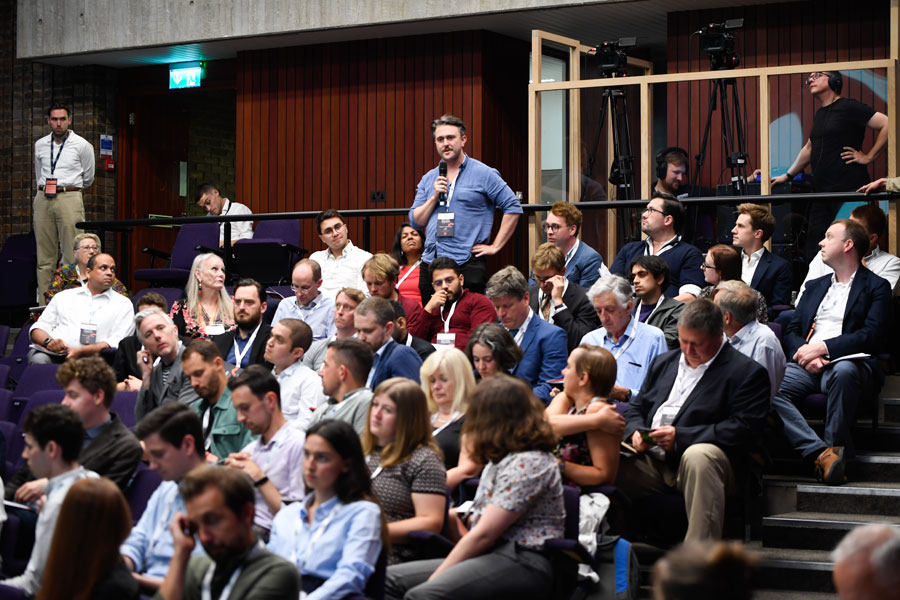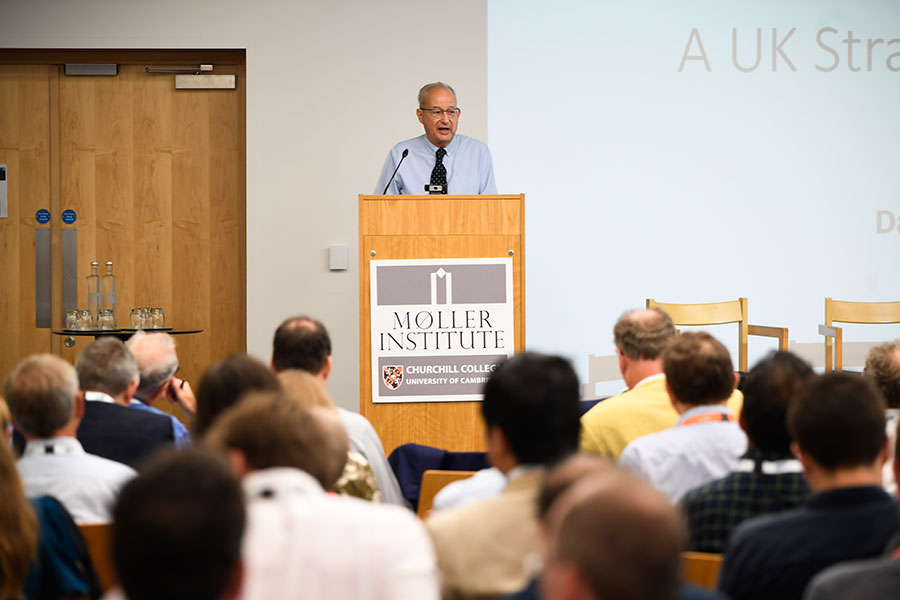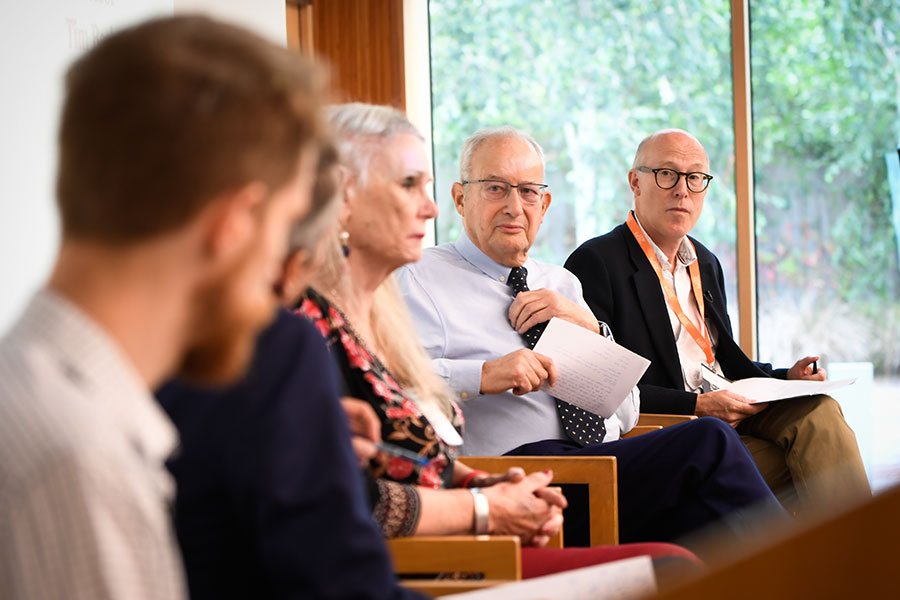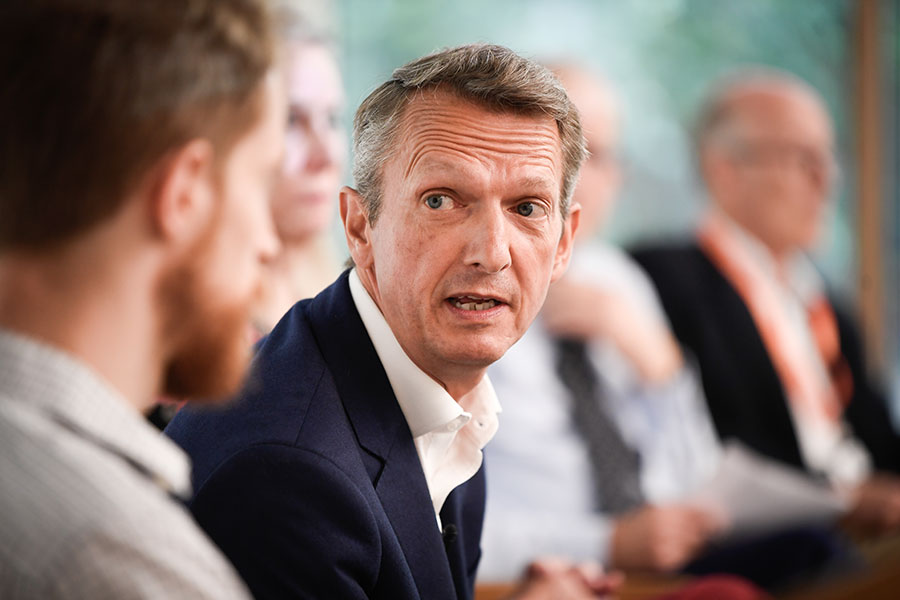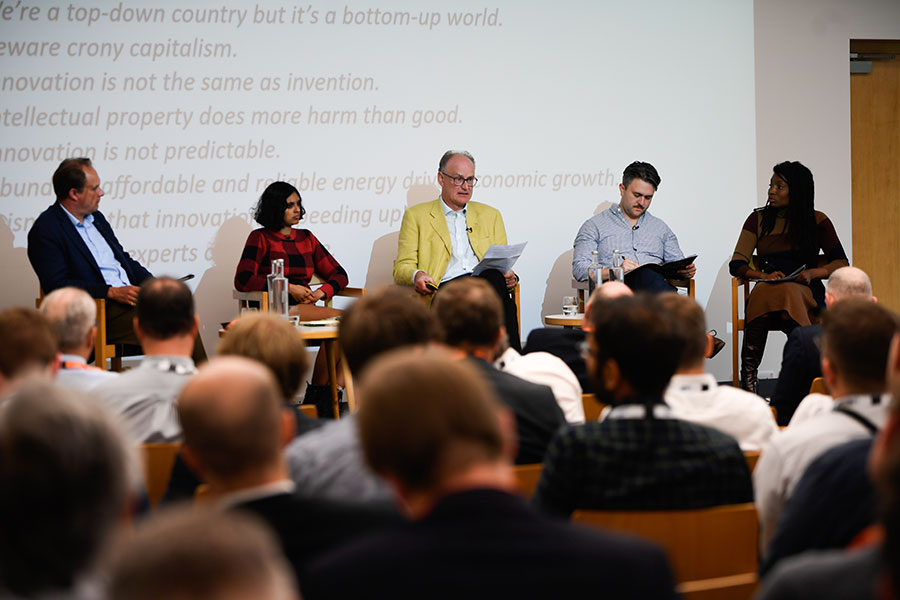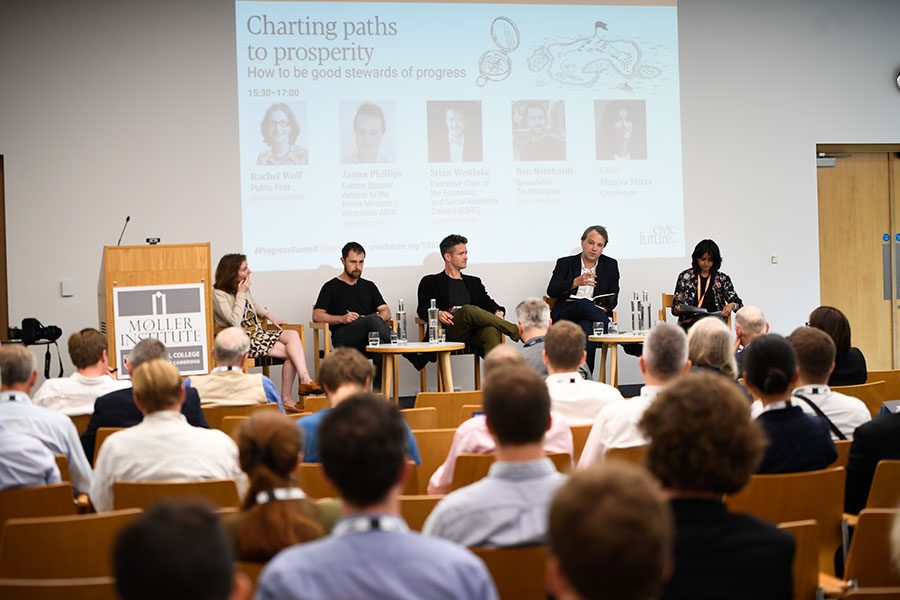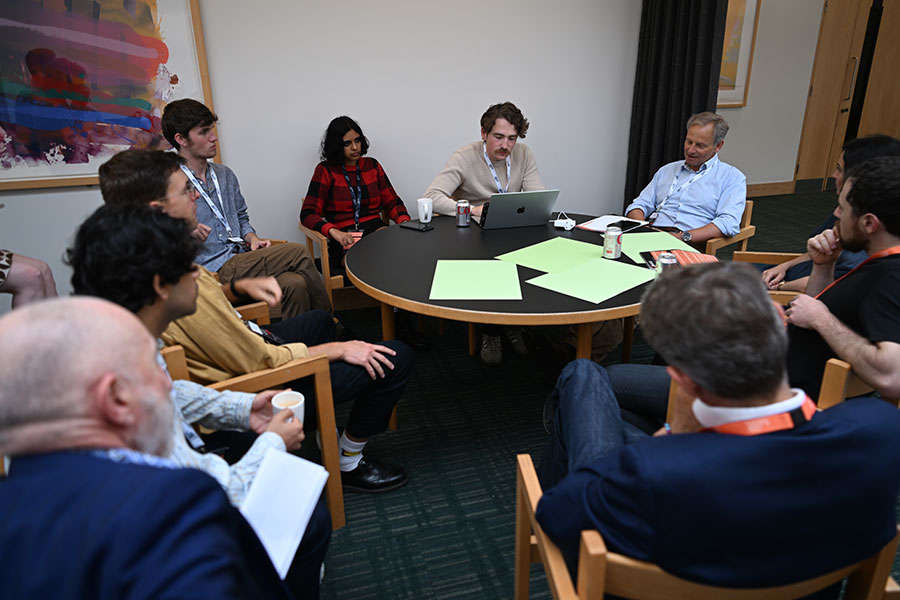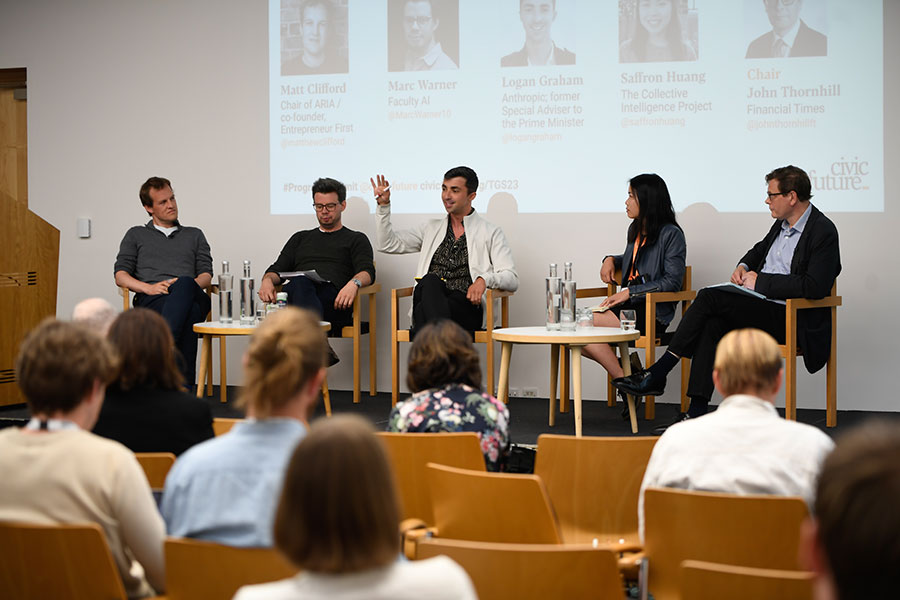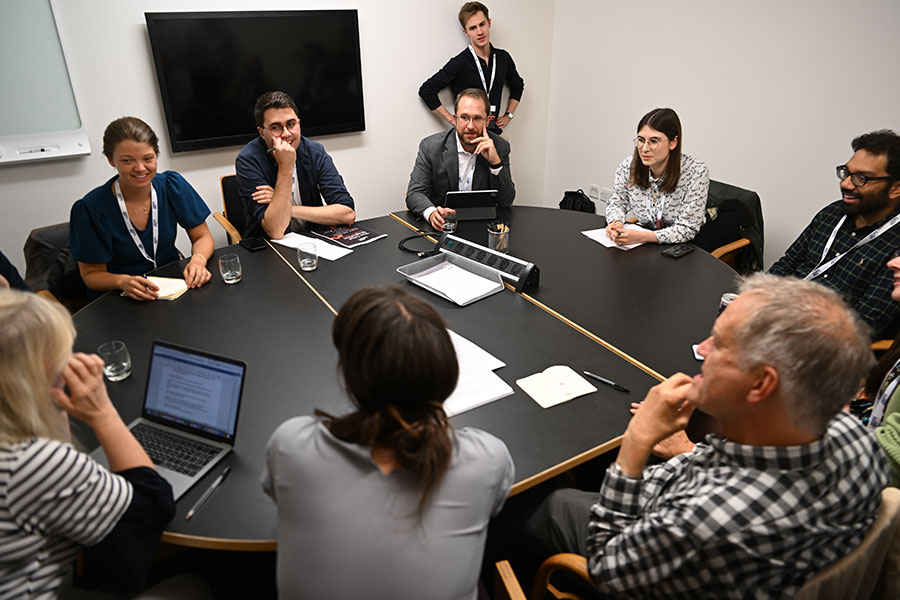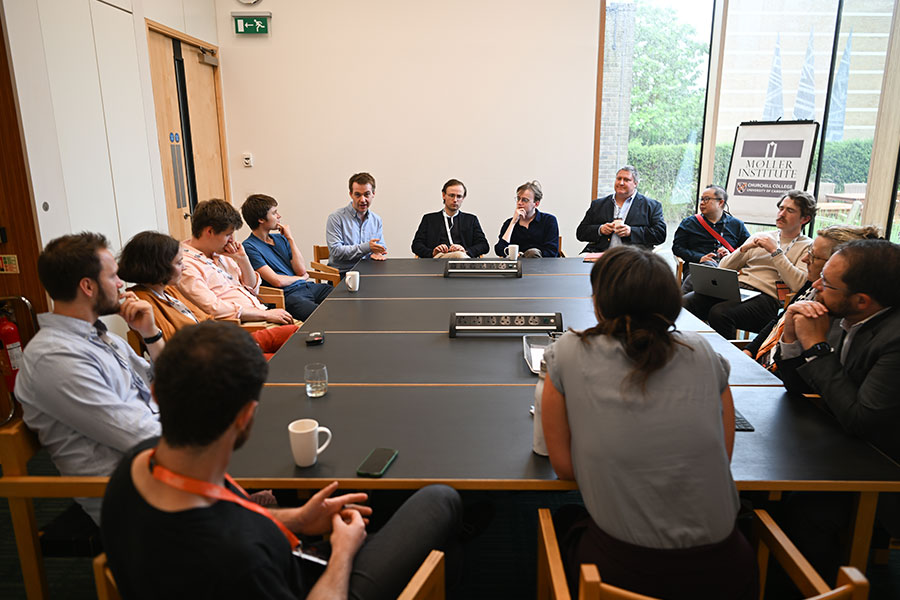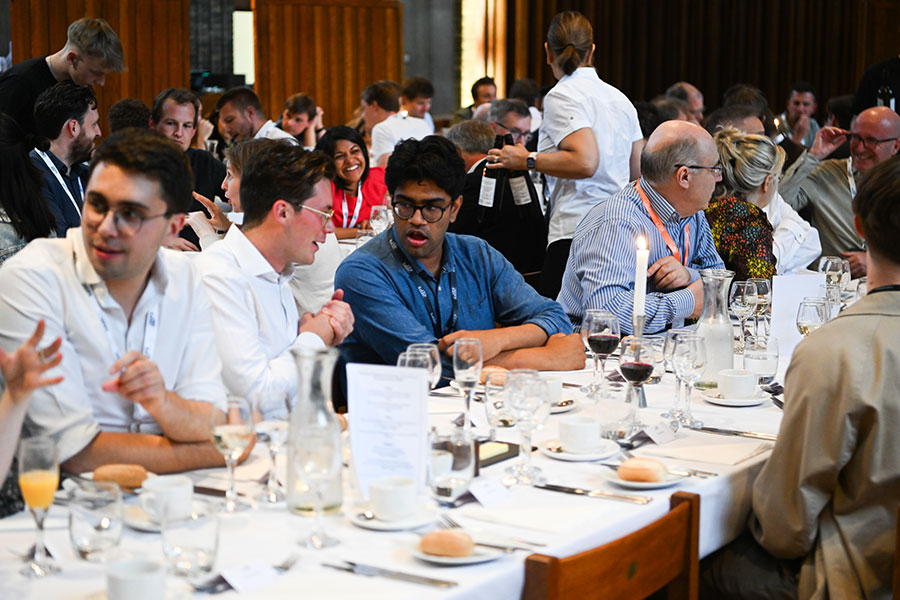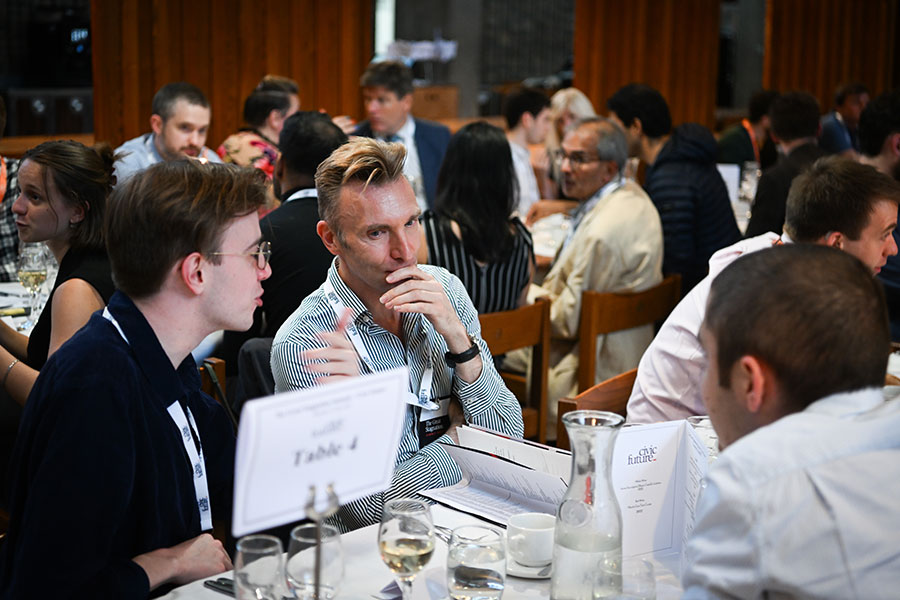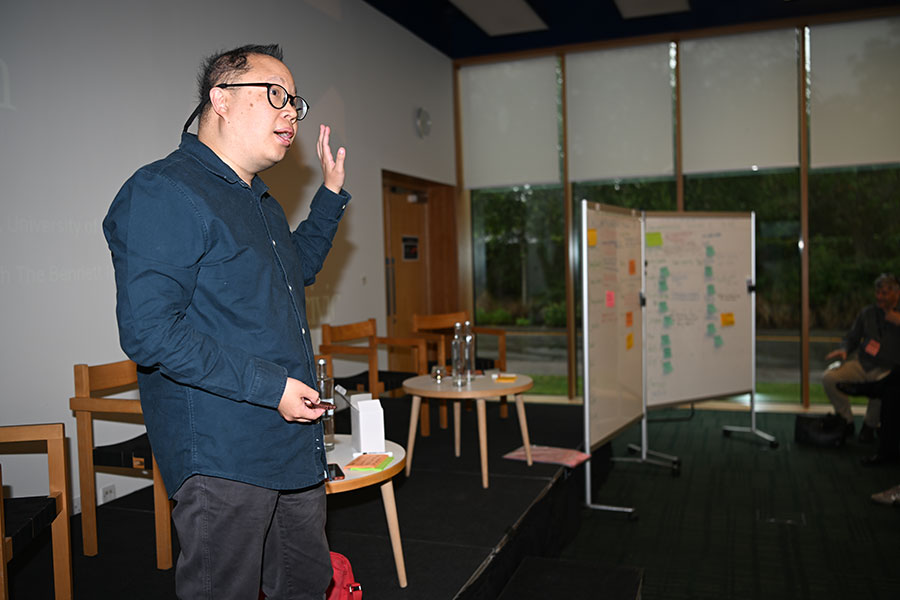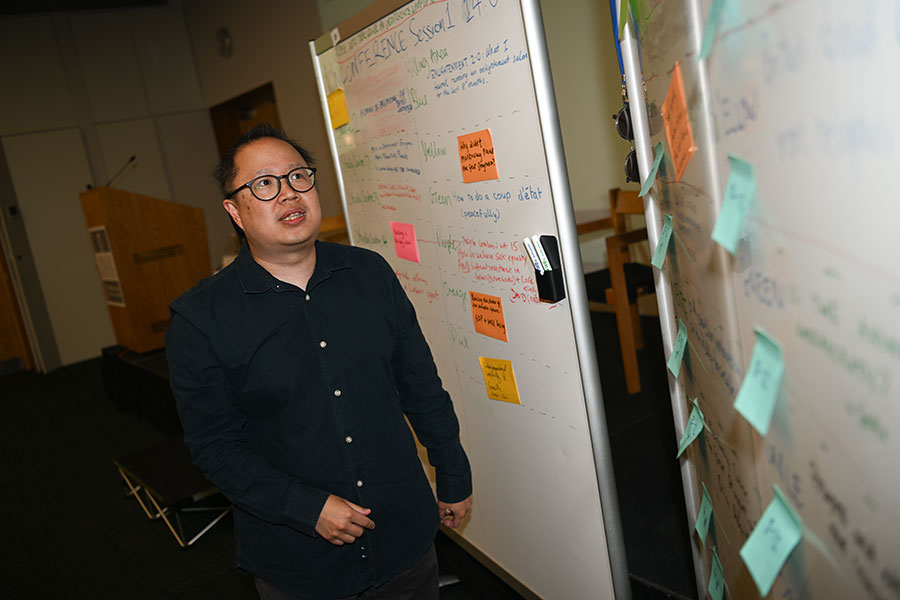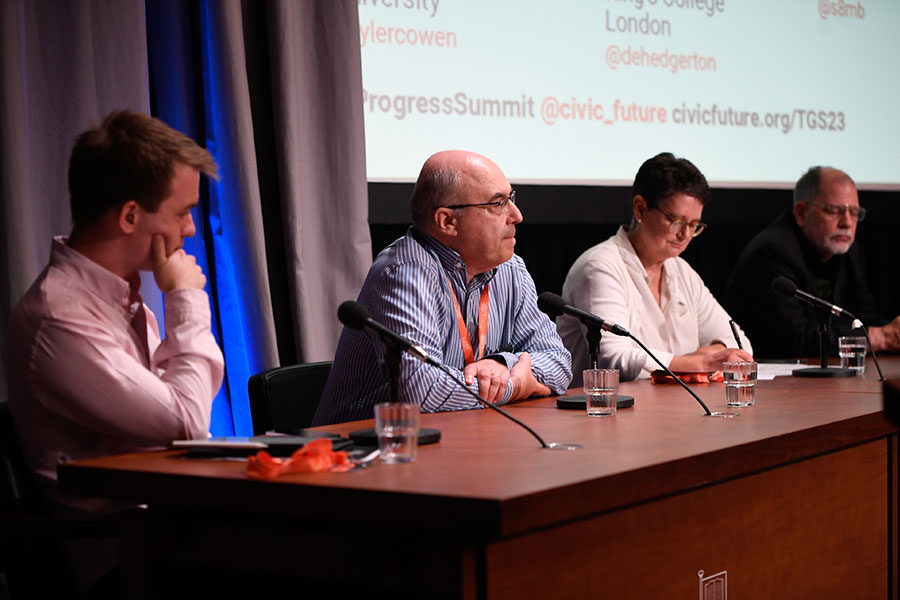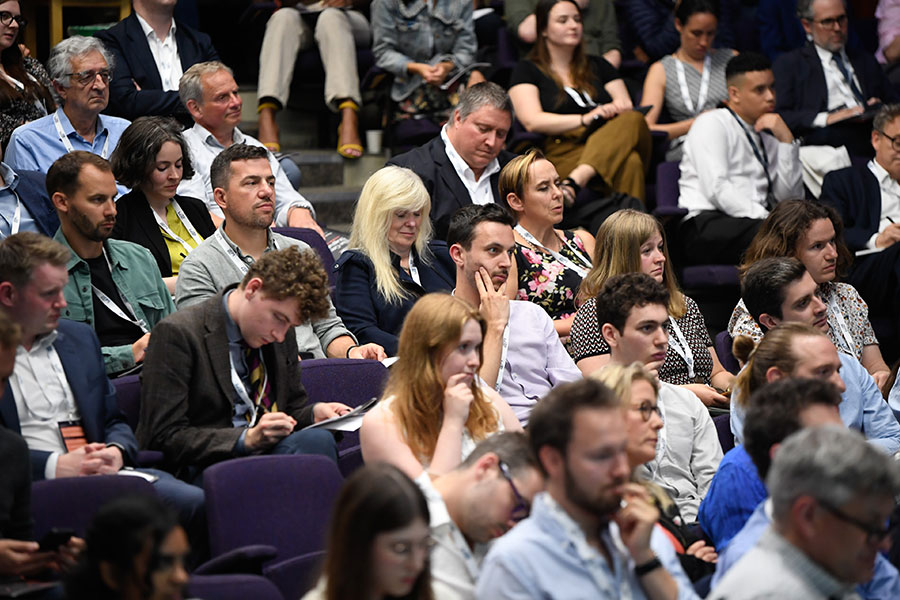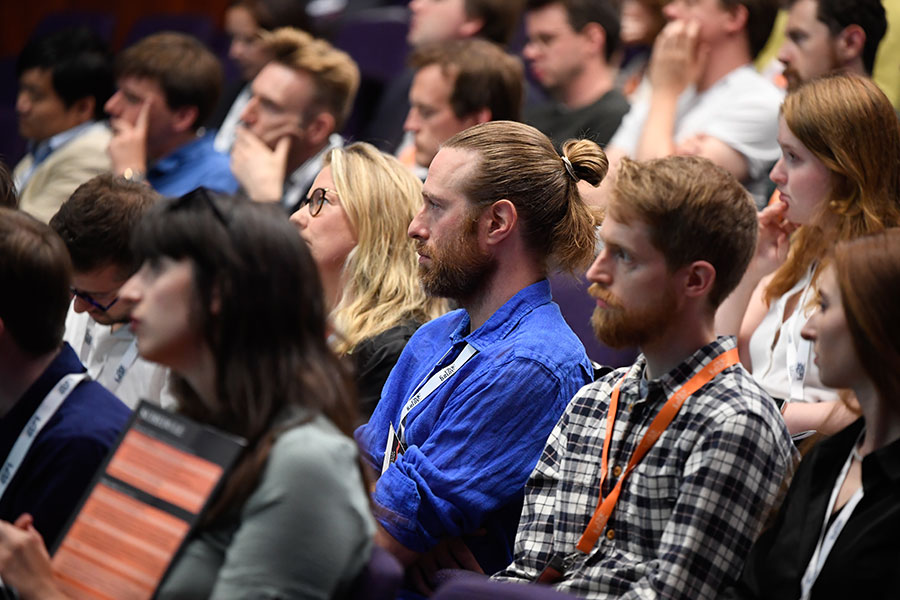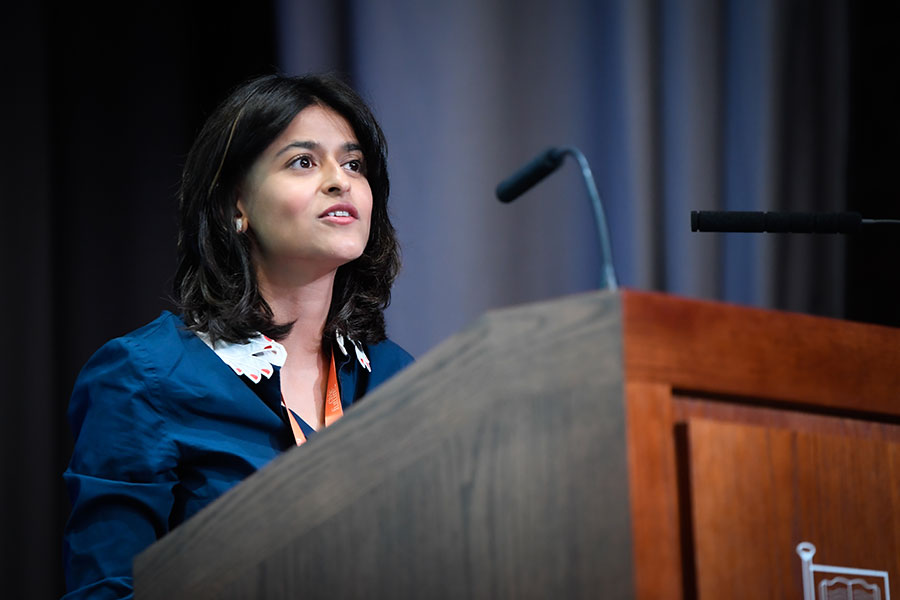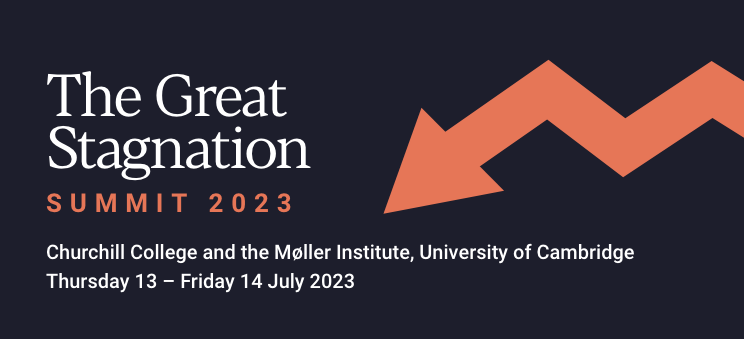
Our inaugural annual conference, The Great Stagnation Summit, took place on Thursday 13 – Friday 14 July 2023 at Churchill College and the Møller Institute, University of Cambridge.
With living standards, wages and productivity flatlining – if not declining – the Summit explored ways to encourage growth and how to reinvigorate faith in progress.
In his opening keynote address Professor Tyler Cowen outlined reasons why Britain should be optimistic about its economic fortunes, pointing to major technology firms such as DeepMind and government agencies such as ARIA, however Professor David Edgerton pushed back, warning against boosterism and calling for modesty on the UK’s position in the world. Economist Sam Bowman argued that elites do not believe in growth as much as they claim and that, rather than viewing ourselves as a world leader, Britain should instead view itself as a developing country in need of catch up growth. Professor Diane Coyle, co-director of event partner the Bennett Institute for Public Policy, argued optimistically that we ignore the impact of everyday innovations which will change people’s lives, and pessimistically that for a long time ‘we’ve been using nature free’ and this had become a binding constraint on growth.
“This was perhaps the best conference I’ve been to. The theme couldn’t have been more poignant, and you couldn’t have chosen a better cast list to explore it. Everyone in the room was doing something in their life to make the UK better, and we all left with our network and our motivation being stronger.”
Over the next day and a half, the themes of the summit included effective ways to counter pessimism, fatalism, and conformity, navigating institutional obstacles and vested interests, and how to accelerate supply-side reforms in housing, energy and childcare. Informed debates covered alternative funding structures to promote high-quality research and development, and the best ways to adopt and manage AI.
A two-hour Unconference led by the excellent Ben Yeoh handed the floor to participants, with more than twenty sessions on everything from meritocracy, education and state capacity to how to create a pro-baby and family culture. The summit ended with a historic tour of science and innovation in Cambridge on Saturday 15th July.
“Civic Future are just really good at pulling together a diverse range of people (many of them young!) and throwing them together in new ways.”
Ian Leslie, Conflicted: Why Arguments Are Tearing Us Apart and How They Can Bring Us Together
“Congratulations on a great event… I felt that there was a lot of fresh and interesting thinking… It is a critical moment for us all as we need to ensure that there is a space for open discussion and transcend the narrowness of a lot of political discussion while still staying grounded in reality. This means being both radical and optimistic to combat what is a generally downbeat mood which seems now to have become entrenched in the Zeitgeist”
Professor Tim Besley, Professor of Economics and Political Science at the London School of Economics and Political Science
Background
The last three centuries have seen the world change dramatically. Billions of people have been lifted out of poverty, spurred by rapid developments in science and technology. However, in the last decade, there has been growing concern about whether we can continue to advance at the same pace.
The rate of scientific progress is slowing down, while productivity is stagnating in many developed economies. There are many fixes suggested – housing policy, taxes, simpler regulation, immigration – but successive governments seem unable to deliver the changes needed to encourage growth. At the same time, some are asking whether we even want to continue to chase the traditional ideal of progress. There are now significant strains of thought that believe for the sake of the environment, for greater equality, and for people’s happiness, we should pursue other priorities.
“The Great Stagnation Summit was excellent! The quality of the panel discussions was remarkable, and the thoughtful conversations I engaged in with other attendees were particularly stimulating.”
Thus, The Great Stagnation Summit aimed to explore the reasons behind economic stagnation in richer liberal democracies and to identify and champion solutions for a more prosperous future. As our world grapples with the challenges of stagnating growth, widening inequality, and the rise of frontier technologies, this conference brought together influential decision-makers and experts from across the political spectrum to look at how we can work together to tackle one of the biggest challenges of the century.
Speakers and Chairs

Tyler Cowen
The keynote speaker for the event is renowned economist Tyler Cowen of the Mercatus Center, George Mason University, whose influential book The Great Stagnation: How America Ate All the Low-Hanging Fruit of Modern History, Got Sick, and Will (Eventually) Feel Better.

Professor Tim Besley
Professor of Development Economics, London School of Economics; member, National Infrastructure Commission; co-author of Investing for Prosperity; President, Royal Economic Society; editor, Economica

Sam Bowman
Founder and editor of Works in Progress at Stripe; publisher of the Consumer Surplus newsletter; former executive director, Adam Smith Institute
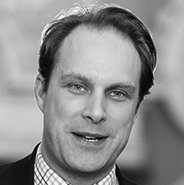
Nicholas Boys Smith
Chair of the Office for Place Advisory Board at the Department for Levelling Up, Housing and Communities; founder and director of Create Streets.
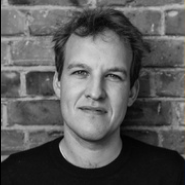
Matt Clifford MBE
Chair of the Advanced Research and Invention Agency (ARIA); co-founder, Entrepreneur First; entrepreneur, investor and writer.
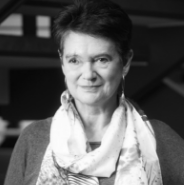
Professor Diane Coyle CBE
Co-director of the Bennett Institute for Public Policy, University of Cambridge; director of The Productivity Institute; author of Cogs and Monsters; Senior Independent Member of the Economic and Social Research Council (ESRC) Council

Professor David Edgerton
Founding director of the Centre for the History of Science, Technology and Medicine, King’s College London; author of The Shock of the Old: Technology and Global History Since 1900 and Science, Technology and the British Industrial ‘Decline’, 1870-1970

Andy Haldane
Chief Executive of the Royal Society of Arts (RSA); chair of the UK government Levelling Up Advisory Council and former Permanent Secretary for Levelling Up at the Cabinet Office; former Chief Economist at the Bank of England

Anton Howes
Head of Innovation Research, The Entrepreneurs Network; editor of the ‘Age of Invention’ newsletter.
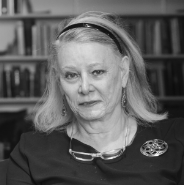
Professor Deirdre McCloskey
Distinguished Professor Emerita of Economics and of History, University of Illinois at Chicago; author of Bourgeois Equality: How Ideas, Not Capital or Institutions, Enriched the World

James Phillips
Former Special Adviser to the Prime Minister & Secretary of State for Science and Technology; co-creator ARIA

Benjamin Reinhardt
CEO of nonprofit ‘sci-fi’ researchers Speculative Technologies; formerly at Magic Leap

Sam Richards
CEO of Britain Remade; former special advisor at No.10 Downing Street, working on energy and the environment
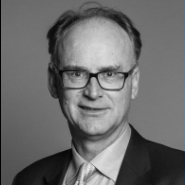
Matt Ridley
Author of How Innovation Works and The Evolution of Everything; The Times columnist; founding chairman, International Centre for Life, Newcastle; former House of Lords science and technology select committee member

Lord Sainsbury of Turville
Lord Sainsbury of Turville, former member of the House of Lords; Chancellor of the University of Cambridge; former Minister of Science and Innovation; former chairman, J. Sainsbury plc; author of Windows of Opportunity: How Nations Create Wealth

Marc Warner
CEO at data-led decision-making scale-up Faculty AI; UK government AI Council member; former Physics fellow, Harvard University
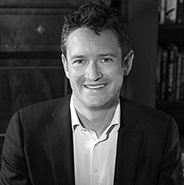
Stian Westlake
Executive Chair of the Economic and Social Research Council (@ESRC); co-author of Capitalism Without Capital and Restarting the Future
“The Great Stagnation conference brought together some brilliant people to discuss one of the most pressing issues of our time: how to ensure that the UK actually deploys the technologies we’ve invented so that they can contribute to human flourishing.”
Schedule and videos
Thurs 13th July
The Wolfson Hall, Churchill College, University of Cambridge, Storey’s Way, Cambridge, CB3 0DS
17:50–18:00
Welcome: Munira Mirza, Chief Executive, Civic Future

18:00–19:30
Progress: Have we run out of road or can we build new highways?
Over the past three centuries, humankind has experienced remarkable progress – notably in science and technology – resulting in billions being lifted out of poverty. However, today, the long march of scientific evolution seems to have paused, while productivity, wages and standards of living are either static or in decline in many advanced economies. Even before the pandemic and the war in Ukraine, the UK economy was stagnating. This is despite attempts by successive governments to boost growth and turn the tide.
Have we used up the major benefits of the last few centuries’ scientific research and development? Is there a cap on economic growth that we’re now bumping up against? Are we experiencing Western ennui? Or should we be optimistic about emerging technologies and the ability of governments and markets to shape the future?
Keynote:
Professor Tyler Cowen, Professor of Economics, George Mason University; author
Respondents:
Professor David Edgerton, Hans Rausing Professor of the History of Science and Technology and Professor of Modern British History, King’s College London
Sam Bowman, Founder and Editor of Works in Progress at Stripe
Chair: Professor Diane Coyle CBE, author; Bennett Professor of Public Policy and co-director of the Bennett Institute for Public Policy, University of Cambridge
Friday 14th July
The Møller Institute, University of Cambridge
08:50–09:00
Opening remarks: Nico Macdonald, co-convenor

09:00–10:30
Rekindling Britain’s economic flame: lessons from the past, strategies for the future
Britain’s economic journey is a tale of repeated transformation. From its sloughing off feudalism with the Reformation, Civil War and Glorious Revolution, to the 18th-century fomenting of the Industrial Revolution, Britain emerged as the world’s first capitalist and industrial nation. However, today many fear that Britain is in a period of slow decline.
How should we understand the circumstances and developments which initially brought about Britain’s growth? Which advantages does Britain retain, and what can be built on to reinvigorate the economy?
Speakers:
Lord Sainsbury of Turville, author; former member of the House of Lords; Chancellor of the University of Cambridge; former Minister of Science and Innovation; former chairman, J. Sainsbury plc
Andy Haldane, Chief Executive of the Royal Society of Arts
Anton Howes, Head of Innovation Research, The Entrepreneurs Network; author
Professor Deirdre N. McCloskey, author; Distinguished Professor Emerita of Economics and of History, University of Illinois at Chicago
Chair: Professor Tim Besley, Professor of Development Economics, London School of Economics and Political Science

10:45–12:15
Progress on trial: reinvigorating faith in growth amid modern challenges
While resistance to progress is not new, present-day challenges to advancement appear increasingly complex and multifaceted – and some argued in bad faith. From balancing environmental conservation with housing needs, and debating the benchmarks of national success to questions about vested interests – and the so-called ‘blob’ – today, progress faces many questions.
Why has faith in progress lost its allure? In an age of short-termism, how can we advocate for long-term investments in ideas, infrastructure and industries for future prosperity? Has a culture of caution and risk aversion stymied progress? What roles do taxation, regulation, and investment play in creating or dismantling barriers to growth? And importantly, why haven’t these ideas for reform happened already?
Speakers:
Aria Babu, co-convenor; Policy Fellow, Coadec
Nicholas Boys Smith, chair of the Office for Place; founder and director of Create Streets
Matt Ridley, author; former House of Lords science and technology select committee member
Sam Richards, CEO, Britain Remade
Chair: Inaya Folarin Iman, Head of Events and Engagement, Civic Future
13:30–15:30
Unconference

15:30–17:00
Charting paths to prosperity: how to be good stewards of progress
Different nations, different paths to progress. The UK and USA see themselves as the champions of free markets, whilst France and South Korea, for example, have often been associated with state-driven economic engineering.
What tangible, effective examples can we draw of good stewardship of progress? How might we frame funding structures and models of oversight to encourage entrepreneurial risk-taking? How can we combat institutional inertia and navigate entrenched vested interests? What should leaders in public life be doing differently?
Speakers:
James Phillips, former Special Adviser to the Prime Minister and to the Secretary of State for Science and Technology
Ben Reinhardt, CEO, Speculative Technologies
Stian Westlake, Executive Chair of the Economic and Social Research Council; author
Rachel Wolf, Founding Partner, Public First
Chair: Munira Mirza, Chief Executive, Civic Future

17:15–18:15
Unlocking the Potential: Harnessing Technologies for a Prosperous Future
In the grip of the digital revolution, artificial intelligence, embodied by tools like ChatGPT, has surged into the public discourse, sparking vigorous debates.
How should we think about and approach the possibilities and risks of artificial intelligence proliferation? How can we best build on these innovations to enhance the UK’s research, industrial, economic and employment base? How do we ensure this improves the quality of life for citizens in the UK and beyond?
Speakers:
Matt Clifford, chair of ARIA; co-founder, Entrepreneur First
Logan Graham, Technical Staff, Anthropic; former Special Adviser to the Prime Minister
Saffron Huang, Co-Director, Collective Intelligence Project
Marc Warner, CEO, Faculty AI
Chair: John Thornhill, Innovation Editor, Financial Times
“A mind expanding few days – I’ve come away with new ideas, plans, and contacts to help bring growth to Britain.”
Press coverage highlights
It’s time to embrace new frontiers of technological change
“There are many opportunities to turn things around — as long as we take seriously what it means to really prioritise growth and the trade-offs that growth involves. It is not technology by itself that will decide its impact on our lives but the ability of the great twin powers of the state and business to integrate, fund and develop new frontiers of technological change.”
The Times, Munira Mirza, Chief Executive, Civic Future
How do we get out of The Great Stagnation?
“We have a very strong science base, a great start-up culture… and in order to get out of this economic stagnation we have to start thinking about how we use technological innovation and it’s not just about more science brain power, it’s about what politicians and people in public institutions can do to also help boost that science talent that we have.”
Times Radio, Munira Mirza, Chief Executive, Civic Future
How do we get out of The Great Stagnation?
“I think there is an opportunity to tell the world, tell the markets that investing in productive infrastructure, things that will help boost the economy, are worthwhile and that the UK has a plan to try and deal with economic stagnation.”
Andrew Marr on LBC, Munira Mirza, Chief Executive, Civic Future
Britain’s pro-growth agenda needs a rebrand to convince reluctant voters
“The time is right to reframe the movement for growth. More than that: we need a new political and policy programme focused on ending our economic stagnation. At the end of last week, a hundred academics, entrepreneurs and policy thinkers gathered at a conference in Cambridge, put together by the organisation Civic Future, to articulate this new agenda.”
CityAM, Adam Hawksbee, Onward
Britain Should Stop Pretending It’s a Rich Country
“Can anything be done to fix the growth machine? It’s easy to be pessimistic. Britain’s productivity growth has been poor for much of the post-war period — perhaps because its first-mover advantage as the first industrial nation turned into a first-mover disadvantage. And growth rates have slowed significantly across the advanced world in recent decades. But, despite its depressing title, a summit on “the great stagnation” last week, organized by Civic Future, an organization dedicated to encouraging talented people to enter public life, and held in Cambridge, gave some grounds for hope.”
Bloomberg, Adrian Wooldridge
How do we fix Britain’s stagnant economy?
“It’s the number one policy problem. If people don’t see their living standards going up. There will be political discontent, other bad decisions will be made… and that’s what we’re seeing. I think that’s why we’re all at this conference, hosted by Civic Future, to figure out what to do”
The Spectator, Kate Andrews and Professor Tyler Cowen
Britain’s ambition to lead technological transformation is hobbled by inertia in both the public and private sectors
“At a refreshingly non-partisan conference run by Civic Future…was the seething frustration felt by many of the British participants at the inability of successive governments to help realise this economic potential.”
Financial Times, John Thornhill
Convenors

Aria Babu
Co-programmer and Policy Fellow at Coadec
Advisors
Sam Bowman, Founder and Editor of Works in Progress at Stripe
Professor Tyler Cowen, Professor of Economics, George Mason University; author of The Great Stagnation (2011)
Professor Diane Coyle CBE, Bennett Professor of Public Policy and co-Director of the Bennett Institute for Public Policy, University of Cambridge
Saffron Huang, Co-director of the Collective Intelligence Project
James Phillips, Former Special Adviser to the Prime Minister and to the Secretary of State for Science and Technology
Paul Reeves, Senior Software Developer, Simulation Technologies Omniverse, Nvidia
Stian Westlake, Executive Chair of the Economic and Social Research Council; co-author of Capitalism Without Capital and Restarting the Future (2022)
Ben Yeoh, Angel Investor
Readings from speakers and chairs
- Babu, A. (2022). Womb for improvement. Works in Progress.
- Bentinck, A. and Clifford, M. (2022). How to Be a Founder: How Entrepreneurs can Identify, Fund and Launch their Best Ideas. Bloomsbury Publishing.
- Besley, T. and Persson, T. (2011). Pillars of Prosperity: The Political Economics of Development Clusters. Princeton University Press.
- Besley, T. (2013). Investing for Prosperity: A Manifesto for Growth. London School of Economics and Political Science.
- Boys Smith, N. and Venerandi, A. (2019). Heart in the right Street: Beauty, happiness and health in designing the modern city. London: Create Streets.
- Boys Smith, N., Iovene, M. and Seresinhe, C. (2019). Of Streets and Squares. Create Streets Ltd.
- Boys Smith, N. (2022). No Free Parking: The Curious History of London’s Monopoly Streets. Blink Publishing.
- Cowen, T. (2011). The Great Stagnation: How America Ate All The Low-Hanging Fruit of Modern History, Got Sick, and Will (Eventually) Feel Better. Dutton Books.
- Cowen, T. (2013). Average Is Over: Powering America Beyond the Age of the Great Stagnation. Dutton Books.
- Cowen, T. and Gross, D. (2022). Talent: How to Identify Energizers, Creatives, and Winners Around the World. St. Martin’s Press.
- Coyle, D. (2014). GDP: A Brief but Affectionate History. Princeton University Press.
- Coyle, D. (2020). Markets, State, and People: Economics for Public Policy. Princeton University Press.
- Coyle, D. (2021). Cogs and Monsters : What Economics Is, and What It Should Be. Princeton: Princeton University Press.
- Edgerton, D. (2007). The Shock Of The Old: Technology and Global History since 1900. Profile Books.
- Edgerton, D. In praise of Luddism. Nature 471, 27–29 (2011).
- Edgerton, D. (2018). The rise and fall of the British Nation: a twentieth-century history. Allen Lane.
- Haskel, J. and Westlake, S. (2017). Capitalism without Capital: The Rise of the Intangible Economy. Princeton University Press.
- Haskel, J. and Westlake, S. (2022). Restarting the Future: How to Fix the Intangible Economy. Princeton University Press.
- Howes, A. (2020). Arts and Minds: How the Royal Society of Arts Changed a Nation. Princeton University Press.
- McCloskey, D. (2016). Bourgeois Equality: How Ideas, Not Capital or Institutions, Enriched the World. The University Of Chicago Press.
- McCloskey, D. (2019). Why Liberalism Works: How True Liberal Values Produce a Freer, More Equal, Prosperous World for All. Yale University Press.
- Mccloskey, D. and Carden, A. (2020). Leave Me Alone and I’ll Make You Rich: How the Bourgeois Deal Enriched the world. The University Of Chicago Press.
- Myers, J., Southwood, B. and Bowman, Sam (2021). The housing theory of everything. Works in Progress.
- Phillips, J. (2022). S&T – Lovelace vision document: ARIA’s proposed twin – a network of new research laboratories using different organisational principles. Substack.
- Richards, S. (2022). Sam Richards: The planning system is holding growth back – and must be made to let go. Conservative Home.
- Ridley, M. (2020). How Innovation Works: Serendipity, Energy and the Saving of Time. Harper Collins.
- Ridley, M. and Chan, A. (2021). Viral: The Search for the Origin of COVID-19. Harper Collins.
- Sainsbury, D. (2013). Progressive Capitalism: How to achieve Economic Growth, Liberty and Social Justice. Biteback Publishing.
- Sainsbury, D. (2020). Windows of Opportunity: How Nations Create Wealth. Profile Books.
- Westlake, S. (2022). The big idea: should we abolish the Treasury?. The Guardian.
Apply to attend
This event is invitation-only. However, we are making available a small number of places to the public. Applications to attend the conference closed on 9th June 2023.




